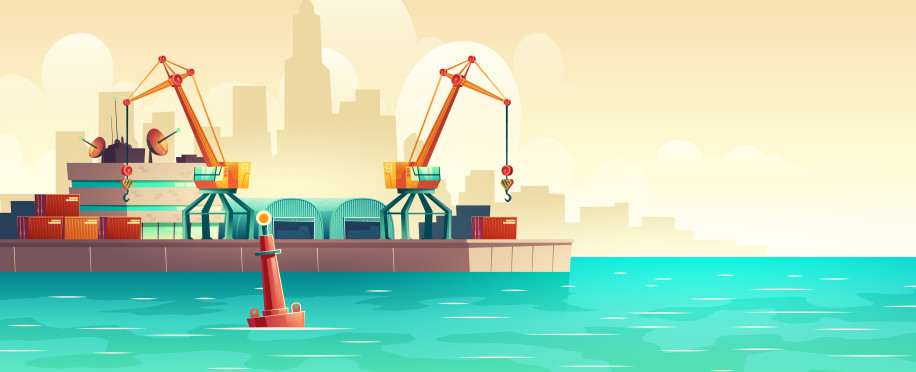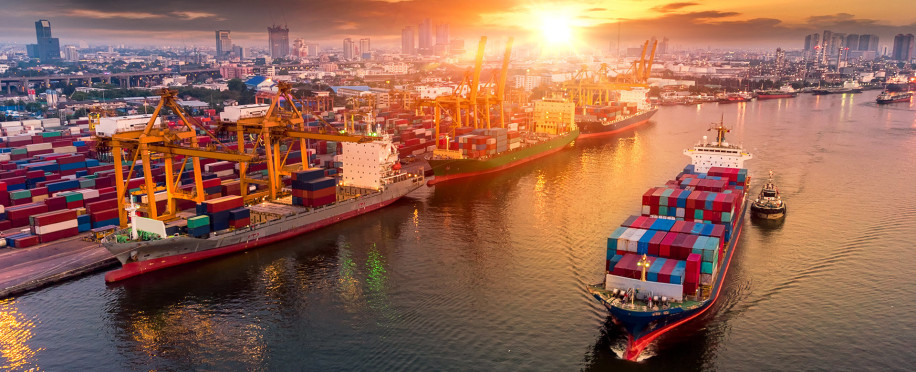Emerging Trends in Coastal Engineering and Shoreline Protection

Posted on Dec 02, 2023 at 11:12 PM
The coastline is the magical zone where the ocean meets the shore, with waves crashing and family vacations nourishing; coasts are one of the most critical places in humans' lives. However, it's turning into a massacre of trash and plastic waste.
With climate change and increasing urbanisation, the need for innovative approaches in coastal engineering has become even more critical.
This article focuses on some primary trends in coastal engineering and the science behind them.
Trends in coastal engineering and shoreline protection
Erosion, flooding, and rising sea levels are among the broad threats that rapidly affect the coastal lines, necessitating increased coastal protection and management needs.
The sustainable movement in the marine world demands new and innovative solutions to combat the impact that international shipping has on the environment; here are some of the trends in that sector:
-
Nature-based solutions: Harnessing the power of nature
Engineers and scientists are now turning to natural solutions to mitigate the effects of rising sea levels, storm surges, and beach erosion. These systems mimic natural phenomena such as dunes, marshes, and mangroves to provide beaches with coastal defence. It not only strengthens coastal resilience but also helps to preserve biodiversity and ecosystem services.
-
Multi-disciplinary approach: collaboration for solutions
Coastal engineering and shoreline protection mostly employ a collaborative approach involving interactions between experts in every branch, including engineering, ecology, hydrology, and Social sciences.
Researchers and specialists now recognise the need for a multi-disciplinary approach to generate holistic solutions. Mixing professional skills and knowledge across various fields ensures that coastal projects involve economic, social, and environmental matters.
-
Adaptive Management: A Flexible Approach
Adaptive management has become a prevalent concept in marine engineering. It offers flexibility to an engineer when dealing with uncertain and dynamic coastal issues like tide currents and sand erosion: continuous evaluation, re-engineering, and design or management techniques changes. Engineers can continually learn from the coastal response to help modify their designed processes to ensure they're more effective and last longer.
-
Green infrastructure: Sustaining coastal resilience
Incorporating green infrastructure such as living shorelines, mangrove plantations, and oyster reefs into coastal defences offers significant benefits, including erosion mitigation and biodiversity support. The Maritime Training Academy is essential in weaving these sustainable practices into maritime education, preparing the next generation of sea professionals to enhance coastal community resilience and welfare.
This approach not only upholds the Academy's commitment to naval training excellence but also champions the protection of marine environments.
-
Innovative technologies: unleashing the potential
Coastal engineering and shoreline protection are undergoing incredible development with technological innovations. For instance, monitoring coast changes through remote surveying tools like LiDAR and satellite images is possible.
Additionally, the modelling software and simulation technology with virtual reality enable testing of various design cases before implementation. These applications provide a basis for making rational decisions and maximising the success of such developments as coastal projects.
How can you be a part of the change?
We've already established that we have a responsibility to address environmental issues. While you might not see your effect on an enormous scope, every person can contribute to the movement towards sustainability, and here's how:

-
Support eco-friendly infrastructure
Shipping organisations can contribute by supporting environmentally friendly structures like green ports, shore-side power, and viable dredging mechanics. Consequently, these actions significantly minimise the ecological footprint of shipping operations and promote coastal ecosystem sustainability.
-
Participate in coastal clean-up programs.
Alternatively, marine waste may be diverted and disposed of in coastal clean-up programs that involve shippers before danger accrues on oceanic resources. Working with coastal engineers using sustainable methods is one way where you could get involved on behalf of your company for conservation purposes.
-
Advocate for sustainability
Your firm can act as an avenue to help people understand the significance of sustainability, whether via your staff/clients. You can also create an opportunity for your customers to discuss sustainability among themselves so that they can practise what they have learnt within their organisations.
-
Always have the proper helping hand.
The construction of sustainable technologies can be complex and requires specific skills. That's why you need an expert on your team, have access to consultants or attend a few coastal engineering courses yourself. Choose a program that covers all the concepts in a comprehensive technical manner that you can apply in your institute.
One final thought
The future of the maritime world depends on combining global efforts to implement sustainable principles like coastal engineering in the shipping industry. While you may not see the impact of your efforts worldwide, you can rest assured that every effort counts.



